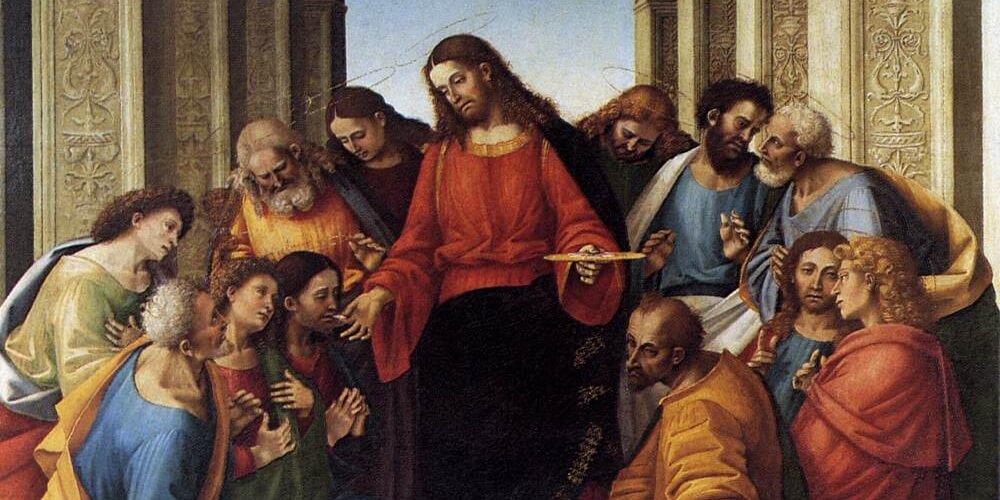
You know the Eucharist is pretty special—but do you know how much it makes a difference in your life outside of Mass? The way you treat your family, and even greet strangers on the street, can be transformed by your reception of Holy Communion.
This sacrament changes our lives. It strengthens our love. After all, the Eucharist is Christ Himself, source of all charity, and we can only practice charity through Him.
What Does the Eucharist Do In and For Us?
The Eucharist is the source and summit of our faith. It roots us in our relationship with Christ. There’s a hidden gem in The Catechism of the Catholic Church (CCC) about the direct link between Holy Communion and our personal growth in charity:
What material food produces in our bodily life, Holy Communion wonderfully achieves in our spiritual life…This growth in Christian life needs the nourishment of Eucharistic Communion, the bread for our pilgrimage until the moment of death, when it will be given to us as viaticum.
CCC, 1392
In other words, our souls are nourished and sustained by this sacrament. It is as necessary to our spiritual lives as food is to the body.
Viaticum (which means food for the journey) calls to mind the Book of Exodus, in which the Lord, out of love, supplied manna for the hungry Israelites in the desert. In Exodus it says,
Then the LORD said to Moses: I am going to rain down bread from heaven for you. Each day the people are to go out and gather their daily portion.
Exodus 16:4
The fact that the Israelites could only gather food for that day’s needs—not food for next week, or the next day—reminds us of a line in the Our Father: “Give us this day our daily bread.”
Thanks to daily Mass, we can receive the Eucharist daily if we wish.
Food for the Journey Throughout Salvation History
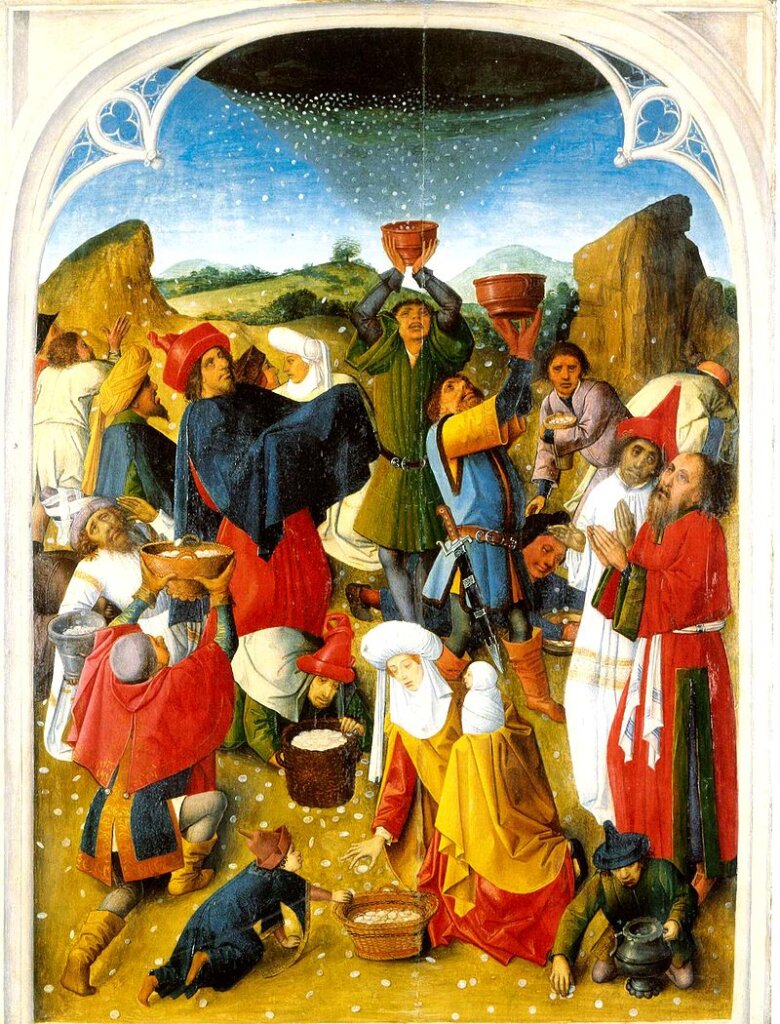
Yes, God’s chosen people could only gather food for that day’s needs, but they were always able to gather enough:
But when they measured it out by the omer, the one who had gathered a large amount did not have too much, and the one who had gathered a small amount did not have too little. They gathered as much as each needed to eat.
Exodus 16:18
We can take confidence in the fact that the Eucharist will nourish each of us personally, filling us in the ways we need to be filled.
In the New Testament, Jesus Himself gave His people bread to eat.
It’s striking that Christ is just as attentive to the people’s physical needs as he is to their spiritual needs. In fact, physical nourishment is often a path by which He leads them to spiritual nourishment and greater trust in Him.
From five loaves and two fish, Jesus feeds 5,000. Matthew 14:20 notes, “They all ate and were satisfied, and they picked up the fragments left over—twelve wicker baskets full.”
As God provided Israel with the food they needed for their journey to the promised land, so, too, Jesus provided food for the crowds gathered in that “deserted place” to which they had come in search of Him. He filled them not only with the strength to make it back to their homes but with wonder at the mighty deeds of God.
Today, the Eucharist is the food we need to reach our true home, the promised land of heaven.
Strengthening Our Charity
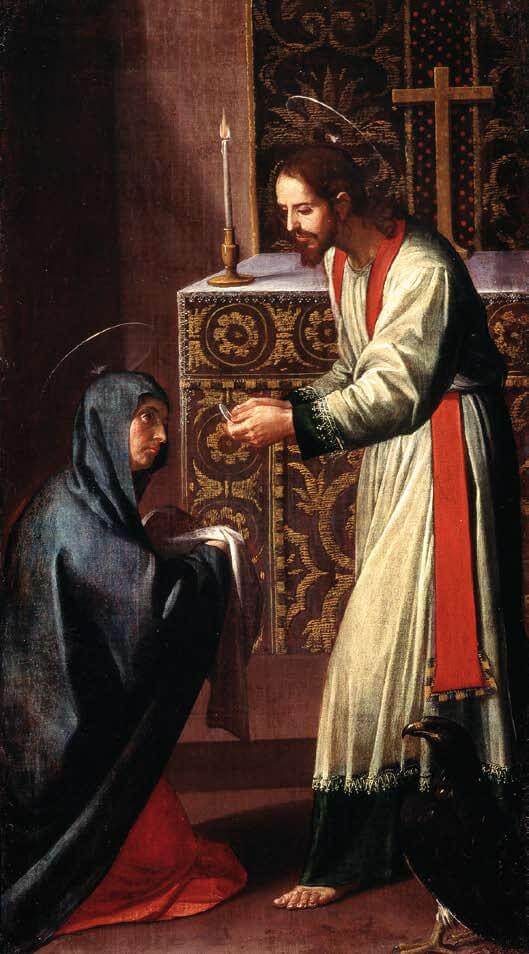
The Eucharist offers a special kind of nourishment: it sustains our spirit and, specifically, our ability to love.
As bodily nourishment restores lost strength, so the Eucharist strengthens our charity, which tends to be weakened in daily life…
CCC 1394
This charity at once makes us more attentive to Christ and to others.
The Eucharist commits us to the poor. To receive in truth the Body and Blood of Christ given up for us, we must recognize Christ in the poorest, his brethren.
CCC 1397
St. Teresa of Calcutta knew this well when she said, “This is why our lives must be woven around the Eucharist. The Christ who gives himself under the appearance of bread and the Christ who is hidden under the distressing disguise of the poor, is the same Jesus.”
In his poem “As Kingfishers Catch Fire,” priest and poet Gerard Manley Hopkins underscores this ability to find in others the face of Christ:
…for Christ plays in ten thousand places,
Lovely in limbs, and lovely in eyes not his
To the Father through the features of men’s faces.
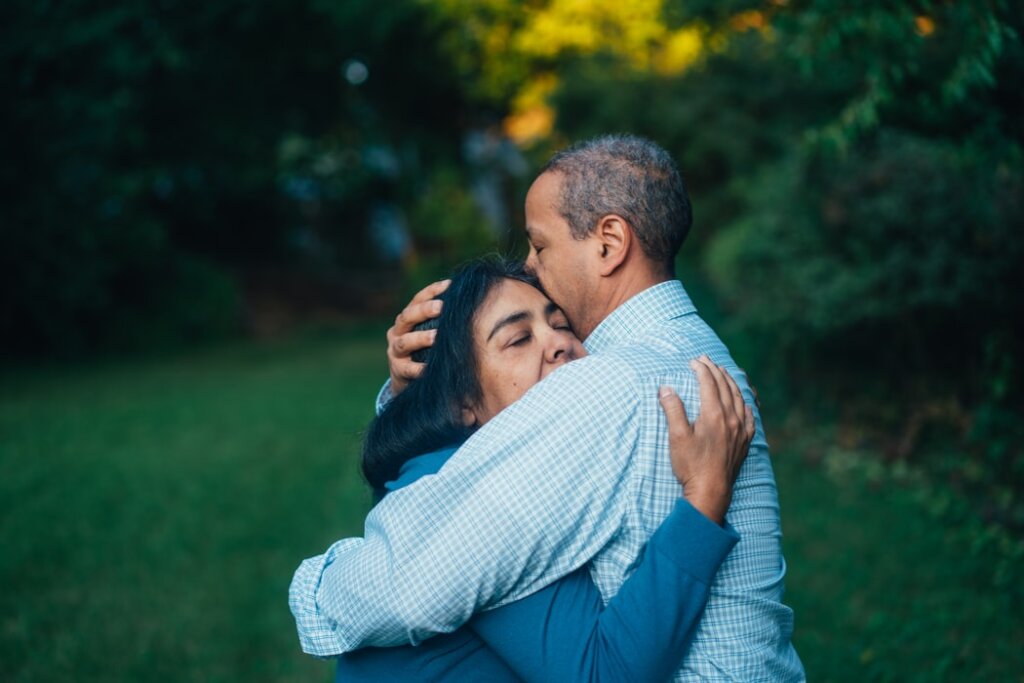
Lest we overlook the poor in our midst, St. Teresa of Calcutta asks:
Do you know the poor in your midst?…Just as love begins at home, so too poverty begins at home. You need to know who is lonely, unloved, and forgotten in your own homes.
St. Teresa of Calcutta
The Eucharist, then, attunes us to seeing the face of Christ in our friends, family members, and strangers, and to more readily discern their needs.
We may also be better able to identify in the needs of others our own dependence on God “who revives our love” each time we receive the Eucharist (CCC 1394).
6 Ways to Deepen your Love for Christ
Wondering how to grow in your love for Christ in the Eucharist and in your charity for others?
Here are a few ways to do so:
- Seek Him in daily Mass as well as on Sunday. If you’re not a daily Mass goer, consider attending Mass on one or two weekdays. More frequent reception of communion convicts us of our need to be nourished by Him daily.
- Visit Him in the tabernacle or in Adoration. Just as frequent visits with friends strengthen our relationships, the practice of spending time in the presence of Christ is a powerful way of growing in intimacy with Him.
- Pray the Divine Praises. Usually prayed during Benediction, The Divine Praises are said before Jesus in the monstrance. They end with a reflection on our unity with Catholics throughout the world: “May the heart of Jesus, in the Most Blessed Sacrament, be praised, adored, and loved with grateful affection, at every moment, in all the tabernacles of the world, even to the end of time. Amen.”
- After receiving Jesus in the Eucharist, make an intentional act of communion. As you return to your pew for silent prayer after receiving Him in Holy Communion, reflect on the awesome mystery that Christ is truly dwelling within you. Share with God your love for Him, and thank Him for His presence in your life.
- Offer your reception of Holy Communion on behalf of someone else. Receive the Eucharist with a particular person and his / her intentions in mind. This is a way of uniting yourself to other members of the Body of Christ.
- Think of one concrete way in which you can practice charity after receiving the Eucharist. This can be as simple as St. Teresa of Calcutta’s recommendation to smile at others. Other small acts of charity might include paying for the coffee of the person in line behind you, or helping a friend or family member with a small task.
What a gift we have in the Eucharist! The fact that we are strengthened in our ability to love is one of the many graces we receive in this amazing sacrament.
This article is part of our Gems of the Catechism collection. Stay tuned for more!

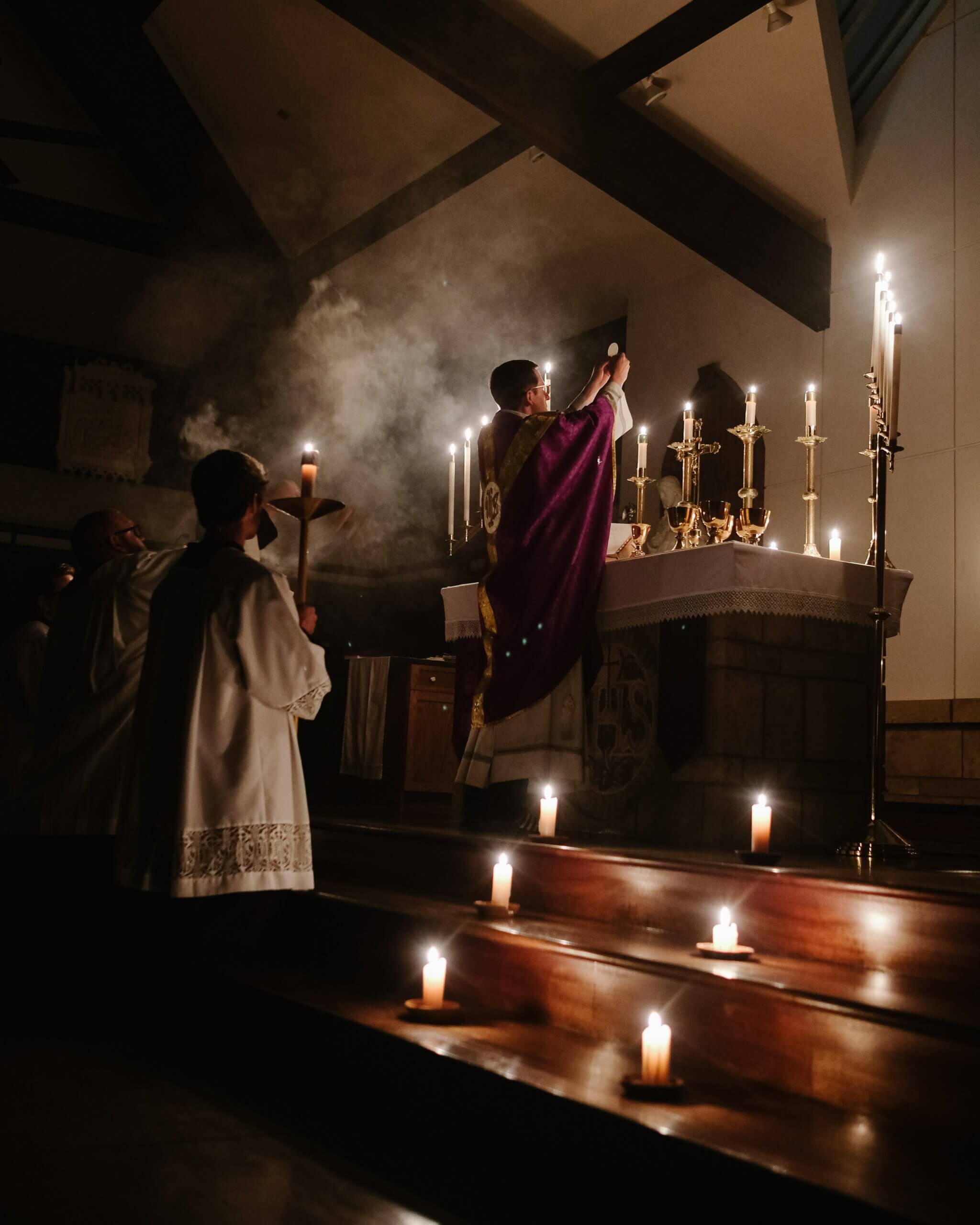


![Don’t Have A Spiritual Director? 5 Things You Can Do To Find One [Video]](https://www.goodcatholic.com/wp-content/uploads/2023/02/HTRTB-Lesson-8-Ellenrieder-Cropped.jpg)
